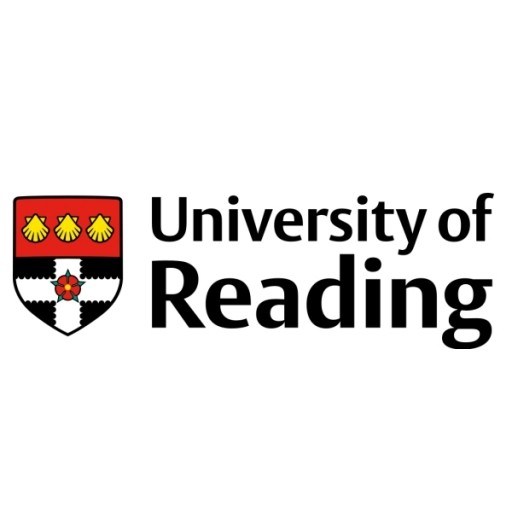Photos of university / #uniofreading
The MSc in Design and Management of Sustainable Built Environments at the University of Reading is a comprehensive postgraduate program that equips students with the knowledge and skills necessary to create and manage sustainable, innovative, and efficient built environments. This interdisciplinary course integrates principles of architecture, urban planning, engineering, and environmental science to address the challenges of modern construction and development in a rapidly changing world. Throughout the program, students explore sustainable design strategies, advanced management techniques, and innovative technologies aimed at reducing environmental impacts and promoting social well-being.
The curriculum covers key topics such as sustainable building design, energy efficiency, renewable resources, environmental assessment, and project management. Students gain practical experience through design projects, case studies, and collaboration with industry partners, preparing them for careers in architecture, urban planning, environmental consultancy, and construction management. The program emphasizes a holistic approach, fostering critical thinking and problem-solving skills to develop sustainable solutions that balance economic feasibility with environmental responsibility.
Additionally, students have access to state-of-the-art facilities and interdisciplinary research centers that support innovative thinking and hands-on learning. The program is suitable for graduates from various backgrounds including architecture, engineering, environmental science, and related disciplines who are interested in advancing their expertise in sustainable built environments. Graduates will be well-equipped to lead sustainability initiatives, develop green building projects, and influence policy-making to foster healthier and more resilient communities worldwide. The University of Reading’s MSc in Design and Management of Sustainable Built Environments prepares students to become leaders and innovators in shaping the future of sustainable development in the built environment sector.
Sample modules:
- Energy in buildings
- Building Information Modelling
- ICT and energy management
- Sustainable design and management principles and practice
- Engineering project management
Requirements
- IELTS: 6.5 overall with no element less than 5.5 (or equivalent).
- You are normally required to have a good undergraduate honours degree (or equivalent from a university outside the UK). If you have other qualifications and a number of years’ relevant work experience then you may also be eligible to apply.
The financing of the Design and Management of Sustainable Built Environments program at the University of Reading primarily involves several funding mechanisms aimed at supporting both domestic and international students. Tuition fees constitute the main component of the financial requirements, with fees varying depending on the student's nationality and whether they are enrolled as full-time or part-time students. The University of Reading provides detailed information on current tuition rates on its official website, which typically include undergraduate and postgraduate level fees. For international students, tuition fees tend to be higher than those for domestic students, reflecting different funding structures and government policies.
In addition to tuition fees, students may need to budget for additional costs such as registration fees, materials, field trips, and research expenses. The university offers a range of scholarships, bursaries, and financial aid options to help offset these costs. For example, merit-based scholarships are available to high-achieving applicants, while need-based bursaries are offered to students demonstrating financial hardship. International students can also apply for specific scholarships designed to attract talented overseas students to the program.
Funding opportunities extend beyond university-specific awards. Students are encouraged to seek external funding sources, including government-sponsored scholarships, industry-sponsored bursaries, and private foundations. The UK government provides financial support for eligible students through schemes like the Tuition Fee Loan and Maintenance Loan, which are accessible through the Student Loans Company. European students can also benefit from Erasmus+ funding schemes, although these are subject to political and policy changes.
The University of Reading also offers payment plans that allow students to spread tuition payments over several installments, easing the financial burden. For international students, there are options to pay deposits upon acceptance of an offer, with balances payable before registration. Additionally, some students may consider part-time work during their studies, which is facilitated by the university’s career services and employment resources.
Overall, the financing of this program is supported by a combination of university scholarships, government loans, external funding, and personal resources. Students are advised to carefully review the financial requirements and available funding options well in advance of their planned start date to ensure they meet all necessary deadlines and criteria for applications. The university’s Financial Support Office provides guidance to prospective and current students on managing the costs associated with their studies and accessing available financial aid.
The Design and Management of Sustainable Built Environments programme at the University of Reading is a forward-thinking course aimed at addressing the global challenges related to sustainability in the built environment. This interdisciplinary programme combines principles from architecture, engineering, planning, and environmental management to equip students with the knowledge and skills necessary to create sustainable, resilient, and energy-efficient built spaces. Throughout the course, students explore innovative design strategies, sustainable project management practices, and environmental assessment techniques, preparing them to lead in the development of greener urban areas and infrastructure. The curriculum emphasizes practical application, encouraging students to undertake real-world projects, collaborate with industry partners, and apply sustainable principles to diverse contexts. The programme also covers topics such as renewable energy integration, sustainable materials, climate change adaptation, and eco-friendly urban planning. This equips graduates to contribute effectively to sustainable development policies and initiatives worldwide. The course is delivered by experienced academic staff through a combination of lectures, seminars, workshops, and studio projects, fostering a creative and collaborative learning environment. Students benefit from access to advanced laboratories, design studios, and software tools relevant to sustainable environment design. Additionally, placements and industry interactions are integral parts of the programme, providing valuable professional experience and networking opportunities. Graduates of the programme are well-positioned to work in architecture firms, urban planning agencies, environmental consultancy companies, government departments, and international development organizations. Overall, the Design and Management of Sustainable Built Environments at Reading aims to produce graduates who are capable of tackling complex sustainability challenges and contributing to the development of environmentally responsible and socially inclusive built environments worldwide.



